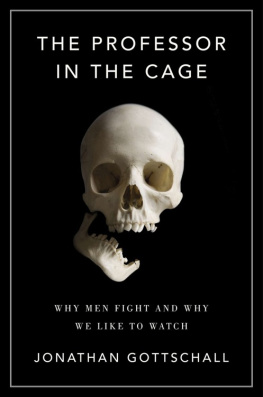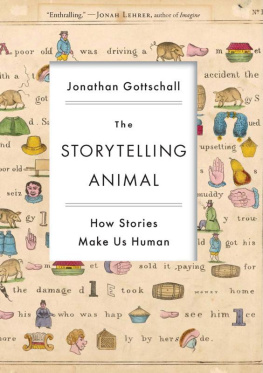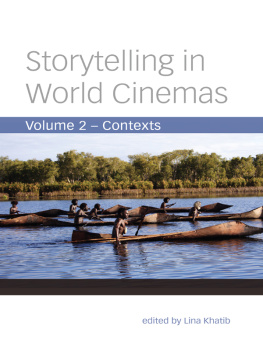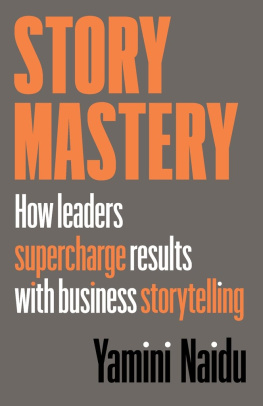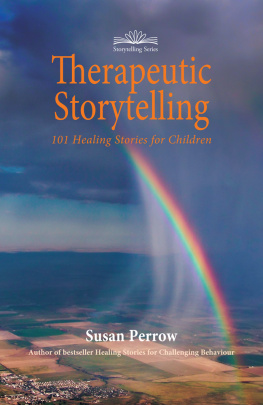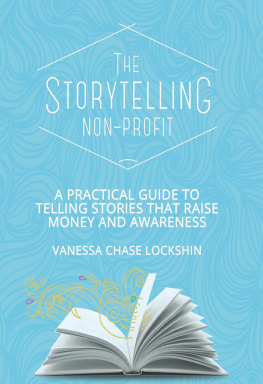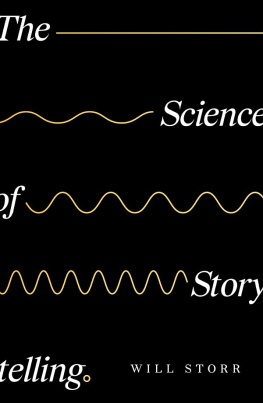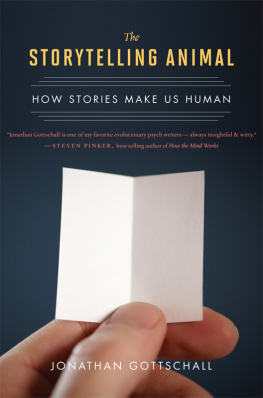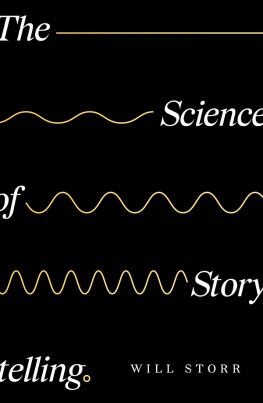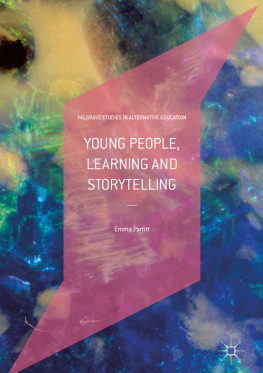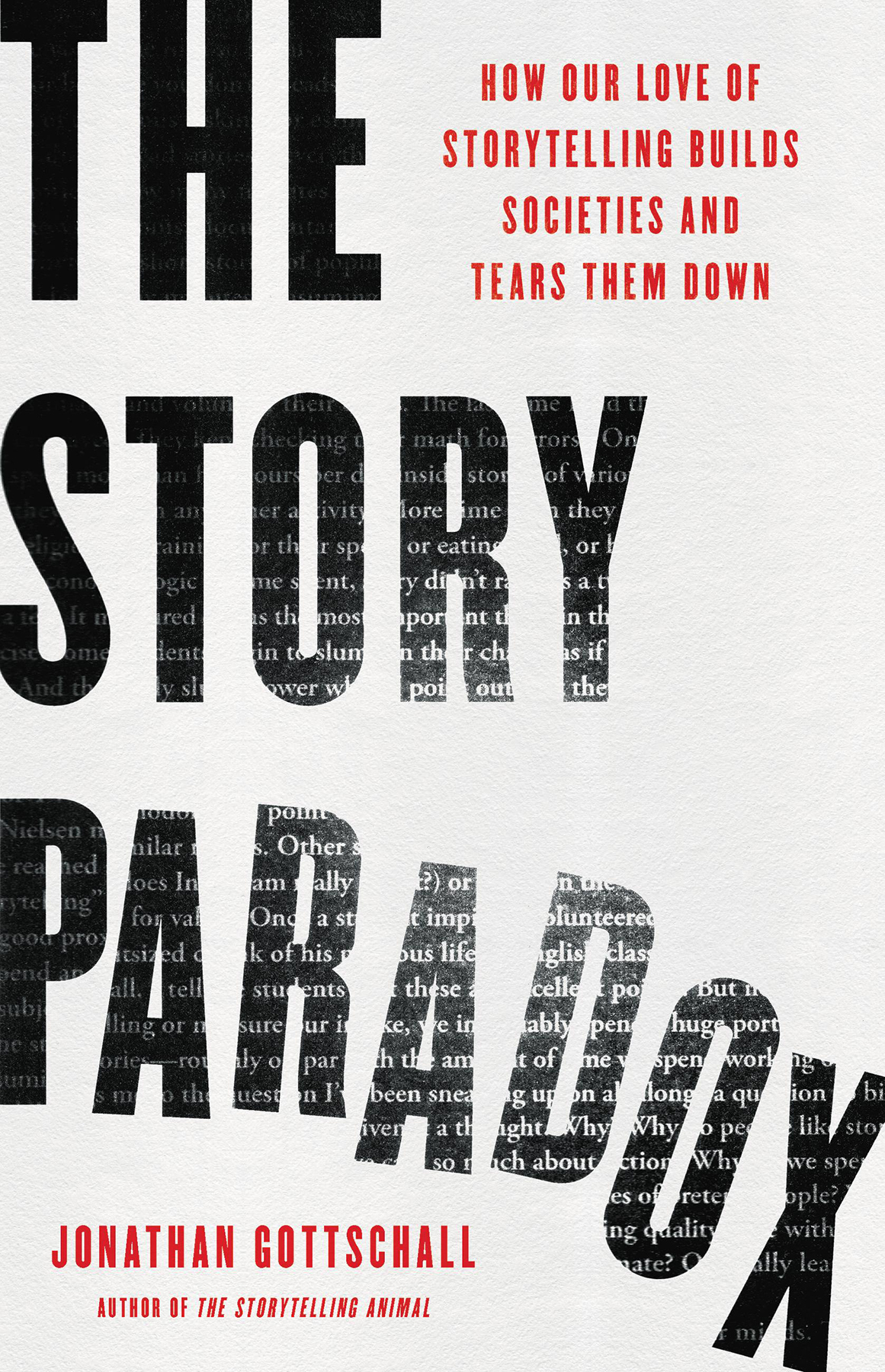
Copyright 2021 by Jonathan Gottschall
Cover design by Chin-Yee Lai and Ann Kirchner
Cover image VadimZosimov / Shutterstock.com
Cover copyright 2021 Hachette Book Group, Inc.
Hachette Book Group supports the right to free expression and the value of copyright. The purpose of copyright is to encourage writers and artists to produce the creative works that enrich our culture.
The scanning, uploading, and distribution of this book without permission is a theft of the authors intellectual property. If you would like permission to use material from the book (other than for review purposes), please contact permissions@hbgusa.com. Thank you for your support of the authors rights.
Basic Books
Hachette Book Group
1290 Avenue of the Americas, New York, NY 10104
www.basicbooks.com
First Edition: November 2021
Published by Basic Books, an imprint of Perseus Books, LLC, a subsidiary of Hachette Book Group, Inc. The Basic Books name and logo is a trademark of the Hachette Book Group.
The Hachette Speakers Bureau provides a wide range of authors for speaking events. To find out more, go to www.hachettespeakersbureau.com or call (866) 376-6591.
The publisher is not responsible for websites (or their content) that are not owned by the publisher.
Library of Congress Cataloging-in-Publication Data
Names: Gottschall, Jonathan, author.
Title: The story paradox : how our love of storytelling builds societies and tears them down / Jonathan Gottschall.
Description: First edition. | New York : Basic Books, 2021. | Includes bibliographical references and index.
Identifiers: LCCN 2021010847 | ISBN 9781541645967 (hardcover) | ISBN 9781541645974 (ebook)
Subjects: LCSH: Persuasion (Rhetoric) | StorytellingSocial aspects. | StorytellingPsychological aspects. | RhetoricSocial aspects.
Classification: LCC P301.5.P47 G68 2021 | DDC 808dc23
LC record available at https://lccn.loc.gov/2021010847
ISBNs: 9781541645967 (hardcover); 9781541645974 (ebook)
E3-20211022-JV-NF-ORI
For Mom and Dad
Tell me a story.
In this century, and moment, of mania,
Tell me a story.
(Robert Penn Warren, Audubon)
N ot too long ago I went to a bar in what I suspected would be a doomed effort to simply think. I was feeling depressed about the state of the world and confused about this book. Id been researching it and planning it for so long. Id written many hundreds of pages of notes, and hundreds more of draft, and Id tried and tossed a score of different titles as I named and rejected all the different versions of this book I might write. It was early in the annus horribilis of 2020 and I knew I was going to blow through my deadline, and probably the next one, too.
Of course, I knew generally what the book was about. Stories. All kinds of storiesfact, fiction, and the uncanny valley of narratives that cuts between. More specifically, it was about the dark power of stories to shape our minds in ways we cant always detect. But Id taken on so much in my researchtwenty-four hundred years of scholarship on Platos Republic , the terrors of the Atlantic slave trade, weird midcentury panics about brainwashing, the hilariously terrifying rise of QAnon and flat earthism, the epidemic of mass shootings, deep dives into the artistic processes of some of the worlds best (and worst) writers, the rise of virtual reality, the polarization of American society down clean narrative lines, along with reams of research on how our brains shape stories and are shaped by them.
This was all in pursuit of a question: Why, at this very moment, do stories seem to be driving our species mad?
So, I sat down at the quiet end of the bar and ordered a tall pour of the houses cheapest bourbon. I rolled in my earplugs and poised my pen over a clean bar napkin. I was waiting for the booze to kick in, hoping that altering my state of consciousness, along with my scenery, might bump me out of my creative rut. I stared at the napkin for a while. I doodled. And then I ordered another drink and looked around. First, I watched a chef-based reality show on one of the muted TVs. And then I turned to the next TV and watched two burly guys on ESPN shout at each other across a table. And then I turned a little farther to watch a cop show end and a news program begin.
By then, Id admitted to myself that I was there to drink, not think. But as I gazed around the bar, I found that the booze really had given me the sideways view of the world Id been hoping for. Normally, when we observe a crowd of people, we dont really observe the crowd. We zoom in on a sequence of individuals. Maybe a particularly pretty person captures our eye, and we study them for as long as we feel we can get away with it. And then our eyes flit to a person dressed especially stylishly or strangely. And then to an especially short or tall or thin or heavy person. Our eyes flick and flick again from one deviation from the norm to the next.
Thats how it is for me anyway. But on this night, I was able to notice the crowd, not the individualsthe forest, not the trees. It makes human beings feel good to pretend that our behavior is various, diverse, unpredictable. But its not. Its uniform, stereotyped, and predictable. And all the people in the bar (with the exception of your sad and soused author) were doing exactly the same thing.
Heres what they were doing. They were waving their hands in the air. They were opening and closing their mouths. They were moving their lips and tongues with great agility and stamina. Some of them were making trilling sounds. Others were bellowing. I saw a man cup a hand to a womans ear and breathe warm information through the whorls directly to her brain. The womans head snapped back in a kind of convulsion. Her neck veins popped as she woofed at the ceiling.
I was riveted. Everyone in the bar was doing this. The patrons at the tables. The servers and bartenders. Even the people on TVthe angry ex-jocks, the plasticized news readers, the actors playing cops and robbers, the guy pitching ShamWows.
I turned back to my bar napkin. I seated a squirming earplug with a finger poke. These people are weird , I wrote. Why are they here? What are they actually doing?
Of course, I knew what they were doing. They were meeting their friends. They were trying to meet the loves of their lives. Or, like me, they were medicating their way through a bit of depression. But why is it that whenever people get together in groups as small as two, they are likely to fall into conniptions of lip flapping, face making, and hand waving?
Every day, all day, people move through gusts of words emitted by themselves and others. Humans spend their whole lives doing itfrom the first sounds babies babble back and forth with their mothers to the last endearments croaked from our deathbeds. Whenever people get together, they take turns talking. And when we arent ourselves conversing, were mostly watching other people talk on TV or reading other peoples words on a page like this one or listening to words spoken on a podcast or crooned in a song.
If you were an extraterrestrial scholar of human behavior and you were asked to name one activity that typifies humanity more than any other, you might say they sleep or they work. But this would just show that youre an alien and you dont get us at all. If you were an Earth-born scholar of human behavior, like me, you might say they communicate.


